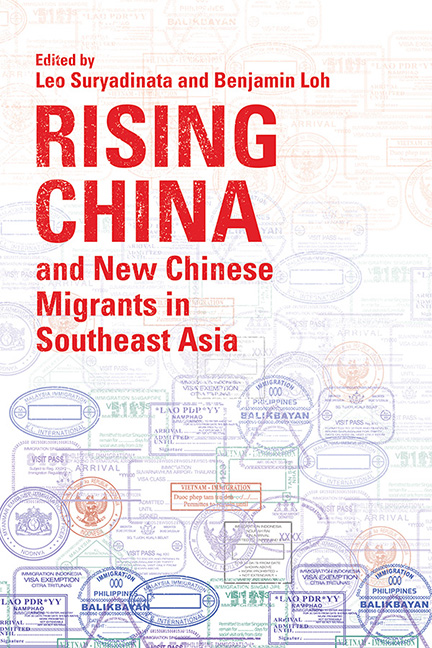Book contents
- Frontmatter
- Contents
- About the Contributors
- Introduction: Rising China and New Chinese Migrants in Southeast Asia
- Part I General Overviews on Rising China and Xin Yimin
- Part II China’s Soft Power, Xin Yimin and Local Communities
- Part III New Chinese Migrants and Local Communities
- Part IV New Chinese Migrants and Local Economies
- Index
4 - Cambodian Perceptions of China: A Chinese Learners’ Perspective
Published online by Cambridge University Press: 09 January 2024
- Frontmatter
- Contents
- About the Contributors
- Introduction: Rising China and New Chinese Migrants in Southeast Asia
- Part I General Overviews on Rising China and Xin Yimin
- Part II China’s Soft Power, Xin Yimin and Local Communities
- Part III New Chinese Migrants and Local Communities
- Part IV New Chinese Migrants and Local Economies
- Index
Summary
The Chinese language has become one of the most attractive foreign languages—it ranks only second to English in Cambodia. The demand for the Chinese language is driven by the influx of Chinese tourists and investments, especially after 2010 when Cambodia and China signed their comprehensive strategic partnership. China has invested a significant amount of resources in promoting the Chinese language in Cambodia, especially under the cooperation framework of the Confucius Institute, intending to enhance people-to-people ties and project a positive image of China. The Chinese language has become a critical source of China’s public diplomacy and soft power projection.
This chapter discusses the supply and demand of the Chinese language in Cambodia and the relationship between language education and acquisition with the political and social values of the learners. The chapter seeks to understand how language education and acquisition affect Cambodian learners’ perception of China. The research does not aim to provide a comprehensive Cambodian perception towards China—it only targets those who learn the Chinese language. There are two assumptions here. First, there is a relationship between the acquisition of the Chinese language and the learners’ perception of China. Second, the learners play an important role in promoting bilateral ties, especially under social and cultural cooperation. The chapter has three main parts: supply-side analysis, demand-side analysis and learners’ perception analysis.
Research Method
The study uses a mixed research method and data collection to understand the perception of Cambodian learners of the Chinese language towards China, including desk review, semi-structured interviews and an online survey. The online questionnaire includes questions relating to learners’ perceptions of the New Chinese, Chinese investments, the Chinese government, and China in general. The semi-structured interviews also focus on the informants’ perception of these issues. The informants are also Chinese language learners, but they did not participate in the online survey. The online survey and interviews were administered from 1 November 2020 to 10 December 2020.
Concerning the online survey, 250 online questionnaires were sent out to Chinese learners in Cambodia using the snowballing approach. As a result, 87 survey responses were collected.
- Type
- Chapter
- Information
- Rising China and New Chinese Migrants in Southeast Asia , pp. 68 - 90Publisher: ISEAS–Yusof Ishak InstitutePrint publication year: 2022



